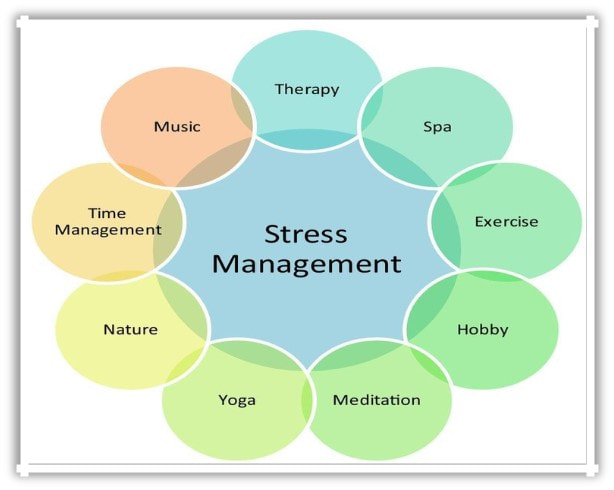Tag: how to control anger
About alcohol abuse
Knowing about alcohol abuse is crucial because it helps individuals understand the risks associated with excessive drinking. Alcohol abuse can lead to a wide range of physical and mental health problems, including liver damage, heart disease, and cognitive impairment. Additionally, alcohol abuse can increase the risk of accidents and injuries, such as car crashes and falls. Knowing about the signs and symptoms of alcohol abuse can also help individuals identify when they or someone they know may need help. Finally, understanding the impact of alcohol abuse on families and communities can help raise awareness and promote responsible drinking behavior. Overall, knowing about alcohol abuse is essential for promoting health and well-being and reducing the negative consequences of excessive drinking.
Facts: How much is too much
Based on the most recent international research data, moderate alcohol consumption is defined as up to one standard drink per day for women and up to two standard drinks per day for men. A standard drink typically contains 14 grams of pure alcohol, which is equivalent to a 12-ounce beer, a 5-ounce glass of wine, or a 1.5-ounce shot of liquor. However, it is important to note that these guidelines are intended for healthy adults and may not apply to individuals with certain health conditions or who are taking certain medications. Furthermore, the risks associated with alcohol consumption increase with higher levels of drinking, and binge drinking (defined as consuming four or more drinks on a single occasion for women or five or more drinks for men) is associated with a wide range of negative health outcomes. It is always important to consume alcohol in moderation and to be aware of the risks associated with excessive drinking.
Alcohol abuse and risks of addiction
Alcohol abuse is a serious problem that affects millions of people worldwide, including Canada. According to a report by the Canadian Centre on Substance Use and Addiction (CCSA), alcohol is the most commonly used substance in Canada. The report also states that in 2018, 3.3 million Canadians aged 15 years and older reported heavy drinking, which is defined as consuming five or more drinks on a single occasion at least once a month.
One of the biggest risks associated with alcohol abuse is the development of addiction. Research has shown that genetic, environmental, and individual factors can contribute to the risk of developing alcohol addiction. A study conducted by the CCSA found that 21% of Canadians who reported heavy drinking met the criteria for alcohol dependence, indicating a high risk of addiction.
Alcohol addiction can have a significant impact on a person’s physical, mental, and social well-being. Long-term alcohol abuse can lead to liver damage, heart disease, high blood pressure, stroke, and cancer. It can also increase the risk of accidents and injuries, such as falls, burns, and car crashes. Furthermore, alcohol addiction can lead to cognitive impairment, memory loss, and other mental health issues.
We are here to help
It is essential to seek help as soon as possible if you or someone you know is struggling with alcohol addiction. Treatment typically involves a combination of medication, therapy, and support groups. However, only a small percentage of Canadians who need help for alcohol addiction actually receive treatment. The CCSA report found that only 10% of Canadians who reported heavy drinking received treatment for alcohol dependence.
Prevention is also a crucial aspect of addressing alcohol abuse and addiction. Parents, schools, and communities can play a critical role in preventing alcohol abuse by educating young people about the risks of excessive drinking and promoting responsible alcohol use. The CCSA report also recommends increasing access to treatment and support services for those struggling with alcohol addiction.
In conclusion, alcohol abuse and addiction are serious issues that can have a significant impact on a person’s physical, mental, and social well-being. The risk of addiction is high for Canadians who report heavy drinking, highlighting the need for increased awareness and access to treatment and support services. Prevention is also crucial, and parents, schools, and communities can play a critical role in promoting responsible alcohol use and educating young people about the risks of excessive drinking. By working together, we can address the issue of alcohol abuse and addiction in Canada and help those who are struggling to find the support and treatment they need to recover.
Poor anger management can lead to the use of drugs, alcohol and other addictive substances
What is anger
- Cultural groups fighting for human rights
- Nations getting together to change a system in power
- Individuals advocating for changing a law
- Communities pursuing changes for a better future


How does anger affect us
Anger can be an instantaneous reaction to an event, or a buildup of unexpressed negative emotions experienced over time and stored within us. As we experience anger, our body releases the stress hormones that during a prolonged period of time can damage our physical and mental well-being.
Anger damages our brain
Stress hormones released from anger hurt our cognitive processes such as short-term memory, decision making, and judgement. As a result, when anger is not well-managed, we act inappropriately toward others by offending, assaulting or abusing them. We might take rushed decisions and possibly use drugs or abuse alcohol to calm us down. Anger can decrease our ability to focus in situations that require clear and quick responses such as driving. Manifesting anger can become a way of living an unhealthy and destructive life.


Anger damages our heart
Anger can damage our heart in more than just a physical way by increasing our heart rate and blood pressure and causing other heart issues. It can also destroy relationships with our partners, family members, and friends and cause unnecessary issues and headaches in the work environment. Manifestation of anger in an unhealthy way can indeed have a negative impact on our children’s present and future as it creates an unsafe and threatening environment for their growth.
Talk to a healthcare professional
Often anger comes from underlying health issues. Depression, anxiety, alcohol abuse, drug use and other mental health conditions, as well as the inability to deal with everyday stresses, can make you feel irritable, overwhelmed, or even out of control. Don’t wait for things to get ugly. Take control of your anger and learn how to manage it. Get professional help and improve your life.


Learn ways to deal with stress
Learn breathing exercises: deep breathing relaxes our mind and lowers the heart rate.
Stress control: yoga, meditation, dance and other activities are a great way to release stress in a positive way.
Take it easy: accept the others for who they are, think like “the bigger person” when someone does things that are not done “your way” and distant yourself from the situations you can’t change or fix.
Find new hobbies: explore new thing to do and interests that make you happy, content and give you a sense of fulfillment.
Facts about marijuana use
More than 6.2 million Canadians have used weed, and many have become dependent on it. But, should you quit smoking weed? Weed products are known for their addictive properties and it is the second most used mind-altering substance in North America. Many have the impression that we can’t become addicted to weed. However, the National Institute of Drug Abuse (NIDA) considers marijuana an addictive substance that contributes to mental health disorders. Psychological dependence is very much possible in which one’s body and brain adapt to marijuana, as it changes the natural ways the brain works, negatively altering its baseline state.

What is withdrawal from marijuana like?
Withdrawal typically starts 1-2 days after you quit, and symptoms may include nausea, headaches, depressed mood, trouble sleeping, nervousness, increased anxiety, decreased appetite, and troubling dreams. The way you experience symptoms depends on how often and how much you consumed before quitting. Chronic cannabis users may also experience long-term health problems.
Having an addiction or dependence on marijuana can lead to effects even when not in withdrawal. THC can cause cognitive impairment, diminished coordination, a slower reaction time, and paranoia. The THC in weed affects dopamine, which leads to euphoria, pain modulation and anxiety. The more weed you consume, the harder it becomes to quit. Abuse of weed can make new things feel boring to you, ruining the novelties of life. Newer studies show that too much marijuana use during adolescence can cause brain long-term damage.
Addiction affects all parts of life negatively. But, quitting smoking weed on your own can be difficult, and many don’t succeed. It’s easy to get discouraged. Thankfully, there are many ways to treat this addiction and help you quit. This is facilitated with behavioural treatments and medical supervision.
Are you or someone you know struggling with an addiction to marijuana? Please contact us, we can help.
